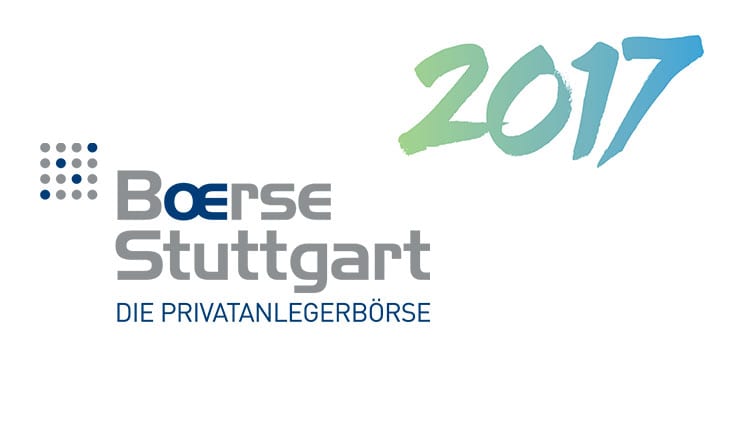Based on the order book statistics, turnover from all trading activities at Boerse Stuttgart amounted to around EUR 80.6 billion in 2017. As such the turnover across every asset class at Germany’s leading floor-trading exchange was slightly above the previous year’s level.
In 2017, Boerse Stuttgart set a new record of EUR 17.8 billion for the volume of trading in equities. German equities contributed over EUR 13 billion to this total and international equities around EUR 4.8 billion. There were particularly large increases in both German MDAX mid-cap shares and German second-line shares. Based on turnover, the most heavily traded German DAX blue-chip shares were Daimler AG, BASF SE, Allianz SE, Deutsche Bank AG and Volkswagen AG preference shares. Turning to international equities, US and Chinese technology shares accounted for the biggest share of turnover. Chinese electromobility stocks were also very popular.
Boerse Stuttgart confirmed its leading position in securitised derivatives on the German market. The trading volume in this asset class exceeded EUR 33.6 billion. Turnover from investment products came to over EUR 17.5 billion. The heaviest trading was in two participation certificates for the cryptocurrency bitcoin. Over 27,000 customer orders with a total volume of more than EUR 216 million were executed. A turnover figure of more than EUR 16.1 billion was recorded for leverage products in 2017.
Based on the order book statistics, exchange-traded products generated turnover of almost EUR 12 billion, just below the impressive figure recorded for the previous year. At over EUR 1.3 billion, turnover from trading in investment fund units showed an increase of more than 37 percent compared with 2016.
Debt instrument (bond) trading in 2017 was again impacted by the ongoing low-interest environment. Order-book turnover was over EUR 15.6 billion and therefore roughly on a par with the previous year’s figure. At around EUR 11.7 billion, corporate bonds accounted for the lion’s share of trading in debt instruments. The three most heavily traded corporate bonds in 2017 were a bond issued by K+S, a Deutsche Bank contingent convertible (coco) bond and a Tier 2 bond from Commerzbank. With a share of around 66 percent of the market, Stuttgart remains Germany’s leading exchange for trading in corporate bonds.
Boerse Stuttgart’s annual statistics can be seen here.
